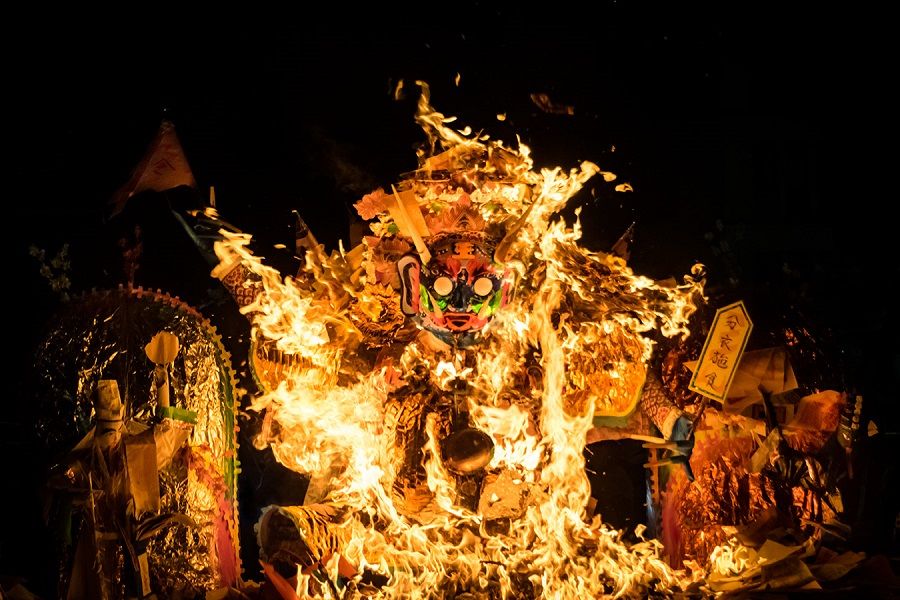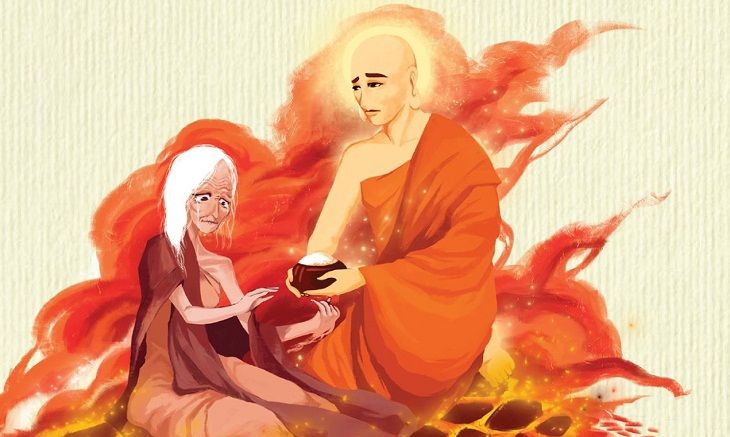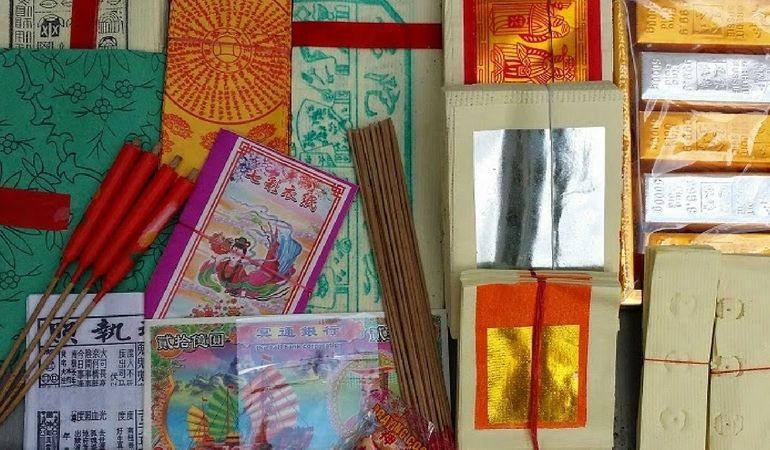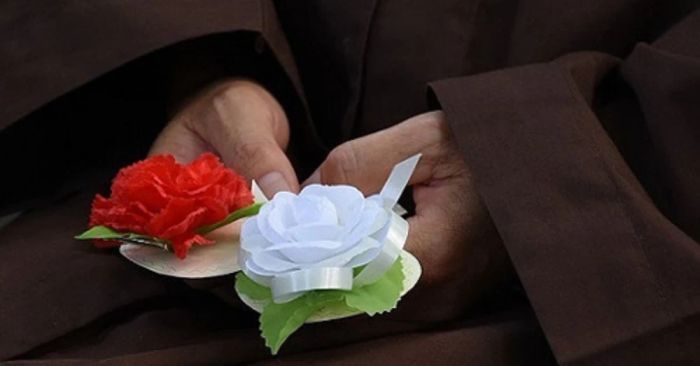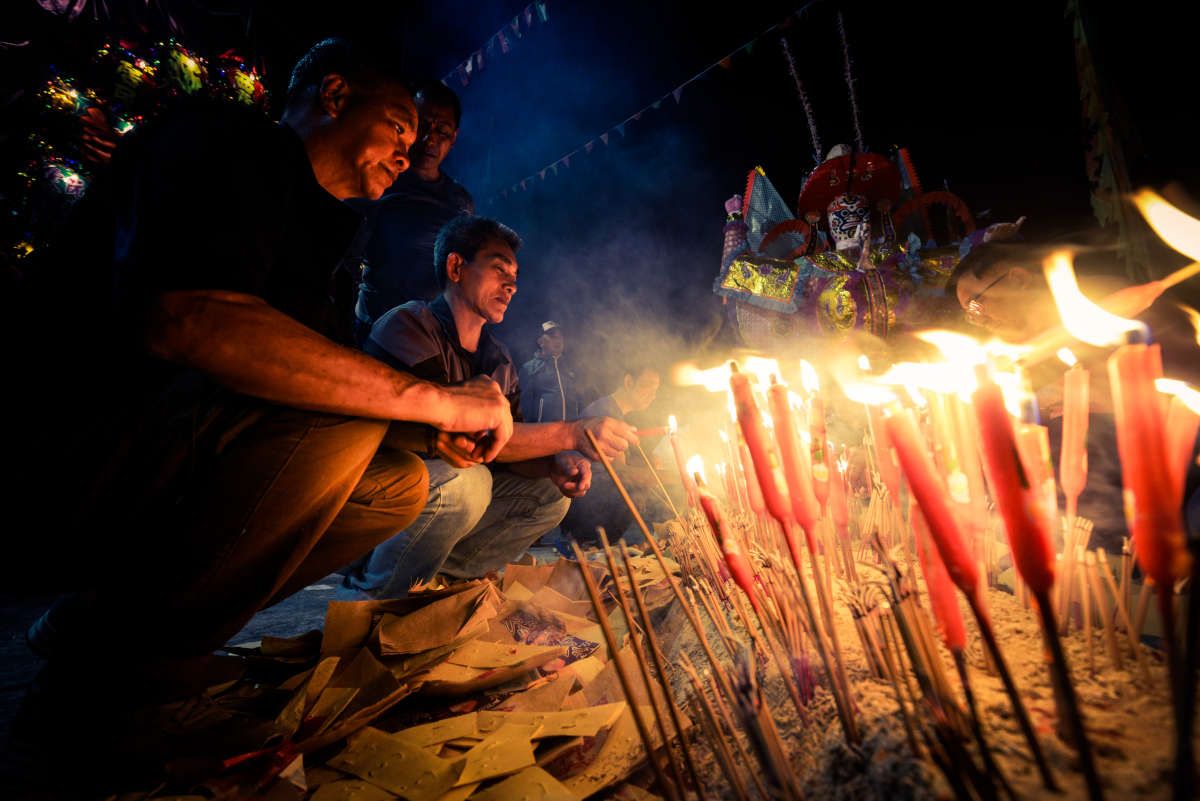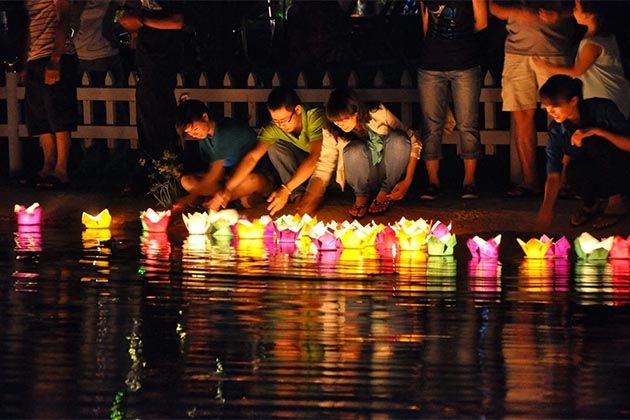Ghost Month in Vietnam: Rituals, Offerings, and Unseen Beliefs
Imagine walking down a Vietnamese street one evening in August, the air carrying the faint scent of incense. Families gather at their doorsteps, setting out trays of fruit, paper money, and even roast duck. Onlookers may wonder: Who is the feast for? The answer lies in Vietnam’s “Ghost Month” — a time when the boundary between the living and the spirit world is believed to blur.
Photo credit: VinWonders
Origins and meaning of Ghost Month
Ghost Month, or the seventh month of the lunar calendar, is tied to the Buddhist Vu Lan Festival, often called the “Day of Filial Piety.” According to legend, it began when a disciple of the Buddha, Mục Kiền Liên (Maudgalyayana), sought to save his mother from suffering in the realm of hungry ghosts. The Buddha advised him to make offerings not just for her, but for all wandering souls, inspiring a tradition of compassion that continues today.
Photo credit: Travel Sense Asia
In Vietnam, this Buddhist foundation blends with folk spirituality. Many believe that during the seventh month, the gates of the underworld open, allowing spirits — both ancestral and neglected — to roam the human world. Families, therefore, prepare offerings to appease hungry ghosts, while temples hold ceremonies to honor both ancestors and all beings in need.
The dual layer — religious devotion and folk belief — makes Ghost Month uniquely Vietnamese: it is at once solemn, practical, and full of unseen nuances.
Rituals and offerings
Step outside on a lunar July evening in Vietnam and you’ll likely encounter one of the most vivid rituals: families setting small tables at the front of their homes, covered with food, fruit, and paper offerings. These are not just gestures but carefully chosen gifts meant to nourish and pacify wandering souls.
Photo credit: Chinese American Family
Common offerings include:
• Rice, salt, and water: simple yet essential elements for hungry spirits.
• Fruits and candies: to sweeten the journey of souls.
• Paper effigies: money, clothing, houses, even smartphones, all made of joss paper and burned as gifts for the afterlife.
• Incense: the bridge of smoke believed to carry prayers and wishes into the spiritual realm.
At temples, monks lead large Vu Lan ceremonies where families gather to chant, pray, and release offerings for both ancestors and lost souls. It is also common to see flower and lantern releases on rivers, symbolizing guidance for wandering spirits.
For many Vietnamese, these acts are not superstition but respect: a way of ensuring harmony between the seen and unseen worlds.
Taboos and superstitions
Ghost Month is also known for its long list of don’ts — precautions rooted in the belief that roaming spirits can bring misfortune if offended. While not everyone follows them strictly today, they remain part of cultural memory, often shared as advice from elders.
Some common taboos include:
• Avoid swimming: rivers and seas are thought to be especially dangerous, as spirits of the drowned may pull the living down.
• Don’t whistle at night: it’s said to attract ghosts.
• Limit major events: many avoid weddings, big moves, or signing important contracts during this month.
• Don’t pick up money or offerings on the street: these are left for spirits, and taking them could invite bad luck.
• Be cautious at night: children are often told not to wander, as their souls are considered more vulnerable.
Even among modern urban families, these beliefs persist in subtle ways — perhaps a postponed business launch, or a grandmother’s gentle reminder not to whistle after dark.
Hidden cultural layers
Beyond rituals and taboos, Ghost Month reveals deeper aspects of Vietnamese culture:
Photo credit: Mytour
• Filial piety – Vu Lan is as much about honoring one’s parents and ancestors as it is about ghosts. Many Vietnamese wear roses on their shirts during temple ceremonies: a red rose if one’s parents are alive, a white rose if they have passed. It is a moving expression of gratitude and remembrance.
• Community care – Offerings are not only for family ancestors but for “lonely spirits” (cô hồn) who have no descendants to care for them. Sharing food, money, and prayers with these souls reflects the Vietnamese value of compassion extending beyond kinship.
• The balance of seen and unseen – Ghost Month highlights how Vietnamese culture embraces both tangible daily life and intangible beliefs. For many, these unseen customs guide decision-making just as much as practical concerns.
How daily life shifts in Ghost Month
While not an official holiday, Ghost Month subtly reshapes the rhythm of life in Vietnam. Businesses may see slower deals, families avoid housewarmings, and night markets glow with the light of incense. Street vendors might sell more joss paper than usual, while temples overflow with prayers.
At the same time, modern life carries on — cafés bustle, offices stay open, and young people often approach the month with curiosity rather than fear. This duality is what makes Vietnam’s cultural fabric so fascinating: traditions live alongside rapid modernization, and respect for ancestors persists even in skyscraper cities.
Experiencing Ghost Month as a traveler
For visitors, Ghost Month offers a chance to witness Vietnam’s spiritual side beyond tourist highlights. You may see families performing rituals in alleyways, temples filled with chanting, or offerings burning at street corners. If you’re respectful and curious, many locals are happy to explain the meaning behind what you see.
Photo credit: The HK HUB
A few tips for travelers:
• Observe quietly during rituals — don’t treat them as photo opportunities unless invited.
• If you’d like to participate, bring small offerings like fruit or incense to temples.
• Remember that this is a sensitive time; modest dress and behavior are appreciated.
It’s less about “celebration” and more about empathy — stepping into a cultural rhythm where the living pause to care for the unseen.
Frequently Asked Questions
Staying connected to culture with Kin
If you’re planning to be in Vietnam during Ghost Month, choosing where you stay can make all the difference in how deeply you connect with local culture.
At Kin Hotel, located in the heart of the city, you’ll be just steps away from temples, markets, and neighborhoods where these rituals unfold. The Kin team loves sharing local insights, from explaining the meaning of offerings to pointing you toward evening ceremonies nearby. After immersing yourself in the incense and chants of Ghost Month, you can return to Kin’s warm spaces — your calm retreat in the middle of it all.
🛎️ Book your stay with Kin Hotel
Why Ghost Month matters
Ghost Month in Vietnam is not about fear but about remembering, honoring, and caring for both the ancestors we know and the spirits we do not. It reflects a society that values gratitude, empathy, and connection between worlds — seen and unseen.
For travelers, it’s an invitation to slow down, observe, and appreciate the deeper rhythms of Vietnamese life. Whether you join a temple ceremony, witness a family’s offerings, or simply breathe in the incense drifting through the streets, Ghost Month offers a reminder that journeys are not just about places — but about the stories, beliefs, and unseen ties that shape them.
Photo credit: Indochina Tours
Love diving into Vietnam’s rich culture and timeless heritage? Follow @kinhotel on Instagram and TikTok for hidden traditions, inspiring stories, and deeper ways to connect with the soul of Vietnam.

